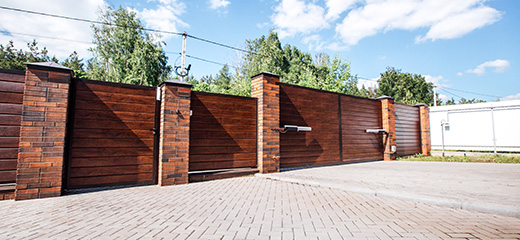
Preparation is key for home renovations
If you’re ready to start on your dream home renovation or improvement project, you may be worried about what you’re getting yourself into. Spending enough time on preparation before you give the builders the go-ahead will ensure hassles are left to a minimum.
Most of us have heard a nightmare construction story or two. From projects going way over budget or deadline, to sub-standard work that required expensive repairs down the line, and even thefts and criminal activity.
Here are some ways to minimise renovation hassles to ensure you get your money’s worth.
Know what you want
For a builder to deliver on your dream, they need to know exactly what you want. Spend time before speaking to contractors drawing up plans and gathering pictures that reflect your ideas.
Be sure to head out to the shops to browse for fittings, fixtures, flooring and the like that will suit your vision. Gather brochures, and while you’re at it, take note of the pricing to see if it will fit into your budget and whether it will be cheaper for you or your builder to purchase the items.
Have these ready to show potential contractors and ask them to include the design plans in the final contract.
Choosing a contractor
Whether you’re thinking of doing the project yourself or bringing in a company to do it for you, you want to be sure that you have the right skills for the job.
Even if you’re an avid DIYer, spend some time researching the requirements of your project. While some projects are easy for the handy homeowner to get done on their own, others appear deceptively simple and could result in your having to spend more on getting a company in to fix up the mess.
As for outside contractors, you want to make sure you aren’t caught by fly-by-nights or companies that cut corners. Asking friends, family or neighbourhood groups for recommendations will give you some options. Alternatively, look for a qualified and experienced contractor online. Either way, ask your contractors to provide details of their registration with applicable bodies and references from former customers. Follow up with an internet search to get an idea of how long they have been around and how they have been rated by previous customers.
Closing the deal
Negotiating the contract details with your chosen building company is essential to a successful home renovation.
- Cost: As the saying goes: If it looks too good to be true, it probably is. As tempting as that significantly cheaper quote may be, you’re likely to be stuck with hidden costs along the way or sub-standard workmanship. Include an additional 25% to your budget to act as a financial buffer for any unexpected expenses.
- Duration: Your contract should specify a starting date and an expected completion date. Bear in mind that stock shortages, rain and other factors can result in unexpected delays, so add a 30% buffer to your expectations. Some contractors will agree to the inclusion of penalty clauses for projects that are still unfinished well after the deadline has passed.
- Payment schedule: While your builder wants to ensure his hard work is paid for, you want to ensure that the work is properly completed. Most companies will ask for a 50% deposit to cover the costs of materials and, in large projects, might propose a payment schedule over the duration of the building. Rather than tie these payments to dates, consider tying these to the completion of specified phases of the project. Alternatively, consider entering an escrow agreement which will ensure the builder is paid only after the work has been completed to your satisfaction.
- Security and insurance: With so many unknown people suddenly gaining access to your property, security is bound to be a concern. Speak to your contractors about their team, whether they are long-term or casual labourers and whether they have been vetted. While you’re at it, ask them to provide you with proof of insurance for any accidents and damage that takes place while they are on the property. While you’re at it, don’t forget to let your homeowners and household contents insurers know that construction work is happening so they can advise you on how to remain protected.
- Materials and mess: Construction materials can be an eyesore and, if the renovations are taking place indoors, you’ll want to be sure that your contractor is going to try and limit the disruption to the rest of the home.
- Signoff and warranty: Now is also the time to consider the completion of the construction, signing off, final payment and warranty on workmanship. Ideally, you should have a few days to identify any defects or snags before giving the job your approval and a workmanship warranty should protect you against structural problems that emerge over the next 12 months or more. If you’re worried about missing defects or problems, consider bringing in an independent and experienced assessor to inspect the work on your behalf.









